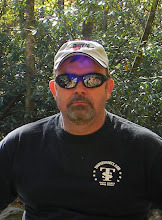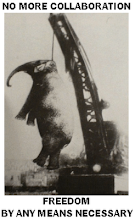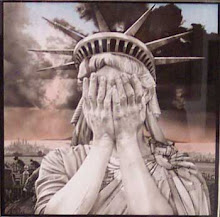Thomas Sowell: Health care myths
Saturday, January 10, 2009
Before you do anything else, make a note to read "The Top Ten Myths of American Health Care" by Sally C. Pipes. It might literally save your life by slowing the political stampede toward a government-controlled medical profession -- usually presented politically as "universal health care."
It is one of the painful signs of our times that millions of people are so easily swayed by rhetoric that they show virtually no interest at all in finding out the hard facts. Any number of other countries already have government-controlled medical professions. Yet few Americans show any interest in what actually happens to medical care in those countries.
Instead, we are being lured into a one-way process -- much like entering a Venus fly trap -- by the oldest of all confidence rackets, the promise of something for nothing.
Fortunately, Sally Pipes is one of the few who has explored the reality of government-controlled medical treatment in Canada and other countries. Among the things she discovered is that new life-saving medications that go immediately into the market in the United States take a much longer time to become available to Canadian patients -- if they ever get approved by the bureaucrats.
No doubt that lowers the cost of medications -- if you count costs solely in money terms, rather than in terms of how many people literally pay with their lives when the bureaucrats are reluctant to buy new pharmaceutical drugs.
Cancer survival rates are higher in the United States than in Europe. A recent report by the Fraser Institute in Vancouver estimates that annually tens of thousands of Canadians seek medical treatment outside of Canada, even though treatment is free inside Canada and they have to pay themselves for treatment elsewhere.
Other studies show that waiting times for surgery are months longer in Canada, Britain and Australia -- all countries with government-controlled medical care -- than in the United States.
Among the many issues explained in plain English in "The Top Ten Myths of American Health Care" are why pharmaceutical drugs cost so much, why it is misleading to talk about uninsured Americans as if they do not get medical care, and how politicians make existing insurance more expensive by blithely mandating coverage that people would not voluntarily pay for with their own money, if it was left up to them.
In various states, these mandated coverages include alcoholism, acupuncture, breast reduction and treatment for baldness, among other things. You may just want insurance to cover you in case you get hit with some big-time medical problem, but many state laws will not allow an insurance company to sell you "major medical" coverage without all the add-ons that politicians and special interests have come up with.
The net result is more expensive insurance, which in turn can mean more people being uninsured.
As with so many government programs, "the poor" are used as a political justification for imposing government-controlled medical care on everyone. But "The Top Ten Myths of American Medical Care" shows what a fraud that is. First of all, the average uninsured American has above-average income -- and people living in poverty are already eligible for Medicaid.
There are of course some serious problems with Medicaid, as there is with government medical treatment at Veterans Administration hospitals and with Medicare. But such things only highlight the dangers of having the government take over the rest of the medical sector, given its dangerous failures where it is already involved in medical matters.
The lure of something for nothing may be seductive when you are in good health. But it can become a bitter irony when you are waiting months for surgery to relieve your pain or when your life hangs in the balance while some bureaucrat decides whether you can get the best medication or something older and cheaper.
"The Top Ten Myths About American Medical Care" can literally be a lifesaver. What it reveals is unlikely to be told by the mainstream media or by other enthusiasts for the magic phrase "universal health care."
Thomas Sowell is a senior fellow at the Hoover Institution, Stanford University. His Web site is http://www.tsowell.com/.
Saturday
Subscribe to:
Post Comments (Atom)

![[Most Recent Quotes from www.kitco.com]](http://www.kitconet.com/charts/metals/gold/t24_au_en_usoz_2.gif)




























No comments:
Post a Comment